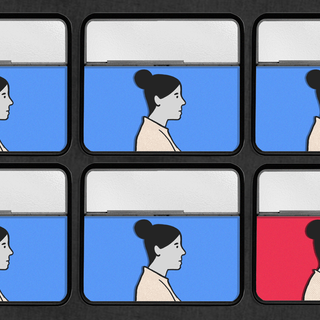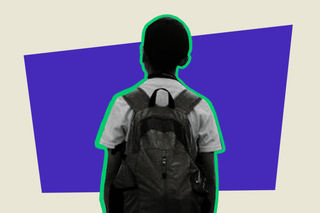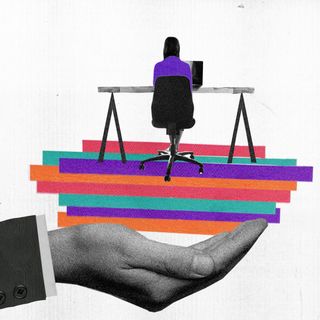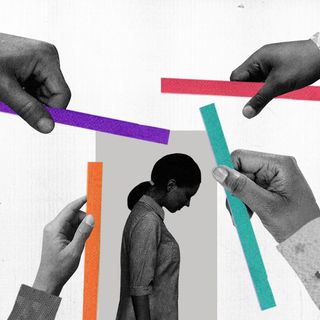
Illinois School Students Can Now Avail 5 Mental Health Days Every Year
Amid a brewing mental health crisis, the new law will help eliminate the financial burden of needing doctors’ notes to get a day off.

Starting in 2022, school students in Illinois in the U.S. can get up to five mental health days off throughout the year — without having to present a doctor’s note.
Already in effect since Saturday, the law applies to all public school students between the ages of six and 17 years. According to reports, students availing of leaves due to mental health will “also be given the opportunity to make up missed work.” Further, the law also states that students, who have availed of more than two of the five approved mental health days every year, shall be directed to appropriate support systems by their schools.
With a mental health crisis rapidly unraveling in the wake of the pandemic, introducing a legislation recognizing the mental health burden on people — especially, the younger generation — can, perhaps, go a long way in ensuring it isn’t simply dismissed as an “excuse.”
“Many students feel stressed, and have developed anxiety and depression because they’re not able to see teachers and friends, and may have lower grades due to remote learning,” State Representative Barbara Hernandez, who co-sponsored the bill, told reporters.
The practice otherwise appears to entail procuring a doctor’s certificate stating the student is ill. By eliminating the need for it, at least five times a year, the new law is trying to reduce the financial burden doctors’ notes often involve. Moreover, given how invisible mental illnesses can be, getting a doctor’s note at short notice is yet another challenge the lawmakers, perhaps, foresaw students dealing with.
Related on The Swaddle:
Pandemic Lifestyle Has Worsened Health of University Students, Study Finds
The lawmakers expect the new rule will also help children set boundaries for their mental health, and also learn how to do that. “Kids have to know that when they say something to their parents, as far as like communicating a need, like I need time off, or I need a break — if the kid feels listened to or heard, they’re gonna trust that parent… Then in the future if something bigger arises they’ll be comfortable enough to go to them,” Brandon Kutmas, a mental health counselor in the U.S., explained.
The global health crisis has affected the mental health of children across the globe. Students are under pressure to excel in exams and keep up with deadlines just like they were during pre-pandemic times. Moreover, the added pressure of procuring digital resources to access remote learning has increased the mental health burden for many. Since we’re not living in the pre-pandemic version of “normal” anymore, expecting students to go about their lives as if nothing has changed, simply demonstrates society’s failure to take note of the shift in reality. The new law in Illinois is, perhaps, a means to mitigate the pressure of these heavily misguided — yet deemed “normal” — expectations.
“Grief, fear, uncertainty, social isolation, increased screen time, and parental fatigue have negatively affected the mental health of children… [T]he prolonged, restrictive, and widespread nature of the Covid19 pandemic that has exacerbated the situation,” an article by UNICEF India explained. “Friendships and family support are strong stabilizing forces for children, but the Covid19 pandemic has also disrupted them.”
Students in India, too, have been dealing with the impact of the pandemic on their mental health. According to India’s Social Justice and Empowerment Ministry, 32% of the callers to India’s national mental health helpline launched during the pandemic, KIRAN, were students.
Further, socio-economic issues also impact people’s access to mental health professionals in India. “In a situation where people are unable to access items of essential well-being, mental illness is not considered a priority. As a result, many [existing] patients [too] are abruptly stopping their treatment, simply because they cannot reach the doctors,” Dr. Gunja Sengupta, a senior resident of Psychiatry at Ram Manohar Lohia Hospital in New Delhi, had told The Swaddle.
Related on The Swaddle:
Surviving the Pandemic Has Made Us Kinder, More Aware of Mental Health. Will It Last?
Moreover, the indirect impact of Covid19-related restrictions on the everyday lives of people — like the rise in domestic violence, for instance — further endangers children’s mental health. “According to data, more than 80% cases of domestic violence go unreported. A large chunk of this comes from children, simply because they often do not have access to mechanisms to report abuse. I am afraid that this, which has increased so much in the lockdown, is going to lead to [a] very complex grief presentation. We are already seeing such cases,” Dr. Mayuri Mohanty, a psychiatrist at Asian Institute of Medical Sciences Hospital in Mumbai, who believes that children are an especially vulnerable group at this point, said.
To address the mental health crisis brewing under lockdown, the University Grants Commission in India had directed universities to set up mental health counseling for students. Earlier this year, the Gujarat High Court, too, prevented an engineering college from expelling a student, who couldn’t write his exams due to the depression he was experiencing amid the Covid19 lockdown.
Both of these instances, among others, speak to a shift in society’s cognizance of the emotional and mental burden students shoulder. Lending legal recognition to the importance of mental health, and the degree to which it can impact people’s lives, has become imperative in the present times. Without a legally-mandated structure or precedent in place, it may be easier to ignore the very valid mental healthcare-related needs of people in a society that still tries to steer away from the subject. So, when it comes to the mental health needs of children, who may not even be able to necessarily advocate for themselves always, laws like the one Illinois enacted is certainly a good start.
Illinois’s goal is, perhaps, similar. “As society continues to increase the importance of addressing mental health as a part of health care, we must ensure that our students have the ability to address issues they are dealing with… This bill removes the stigma and allows students to prioritize their mental health and stability,” Illinois State Senator Robert Martwick said in a statement after the passing of the law.
Devrupa Rakshit is an Associate Editor at The Swaddle. She is a lawyer by education, a poet by accident, a painter by shaukh, and autistic by birth. You can find her on Instagram @devruparakshit.
Related


How Peer Support During the Pandemic Redefined Kindness and Empathy at Work
